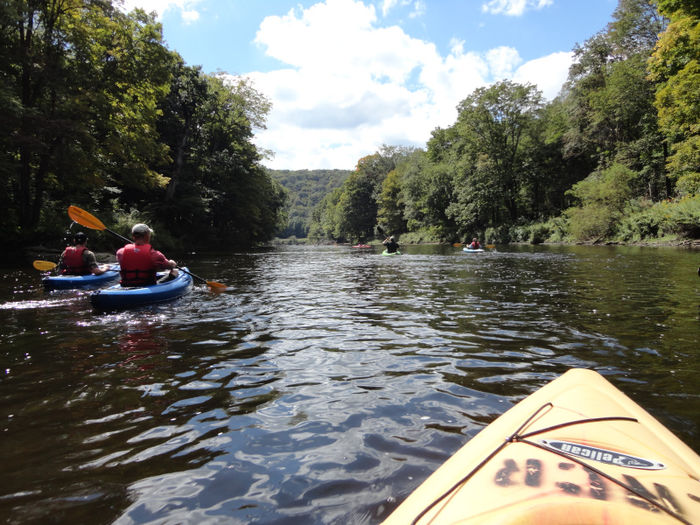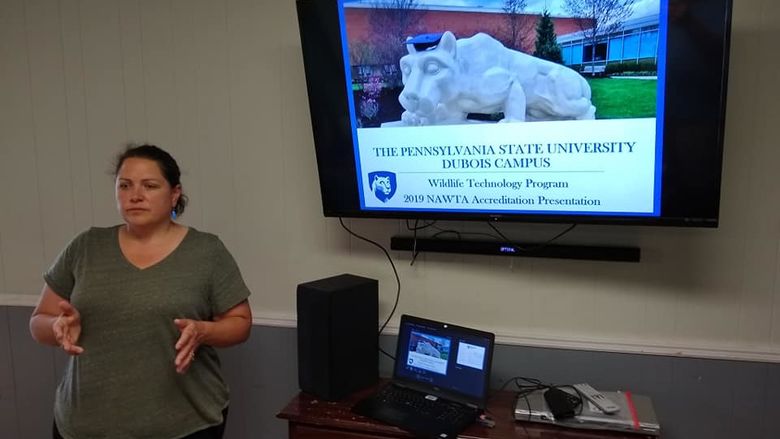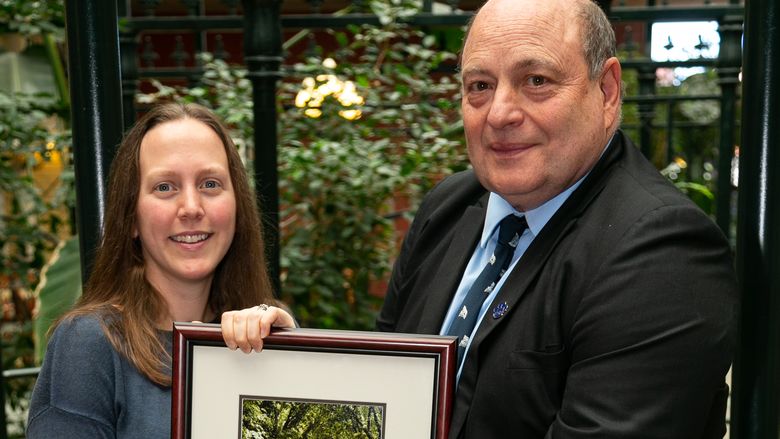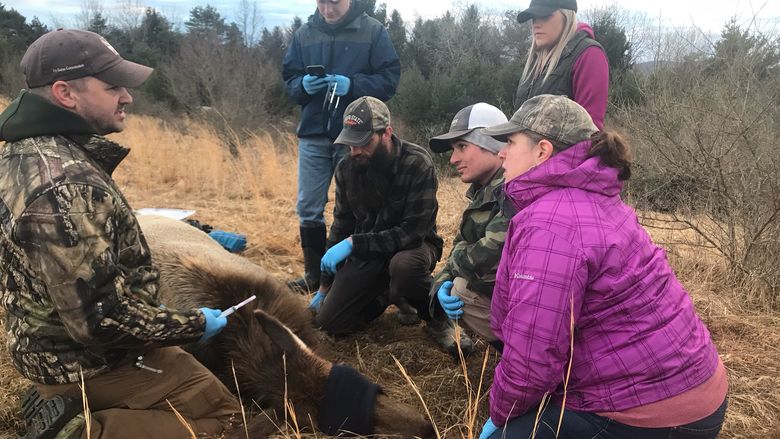The Wildlife Technology program will be continuing and therefore will be holding a Wildlife Visit. Join us to learn more!
Wildlife Visit || Monday, February 23 at 10 am
Wildlife Visit || Friday, March 6 at 10 am
Update: Penn State remains committed to offering the Wildlife Technology program. Students applying for Fall 2026 will complete their first year at Penn State DuBois and their second year at Penn State Altoona. This planned transition allows current second-year students to complete their degree at Penn State DuBois while ensuring a smooth continuation of the program.
Attention outdoor enthusiasts! We have a program for you.
The Wildlife Technology Program is designed to educate students in the techniques of wildlife management. Personnel trained in this field are needed to assist in the applied phases of natural resource management, wildlife biology, range management, and the care, maintenance, and propagation of animals. Graduates support professionals in wildlife biology, park managers, game refuge managers, and laboratory technicians in research.
In addition, a large proportion of students in the program go on to receive four-year degrees in Wildlife and Fisheries Science, Forestry, Ecology and Environmental Studies at universities throughout the country. Located in beautiful DuBois, Pennsylvania, the campus' location allows for many outdoor recreational opportunities as well.
In 2003, the Wildlife Technology Program was nationally reaccredited by the North American Wildlife Technology Association! The program originally received accreditation in 1984.
The U.S. Dept. of Labor projects significant growth in renewable energy and environmental jobs through 2018.
Wildlife Technology (2WLT)
Imagine classes that are held outside of the classroom; classes where you're researching wetlands, collecting soil sample, capturing & tagging and setting free monarch butterflies. The Wildlife Technology Associate degree at Penn State DuBois is all about the hands-on learning. Whether you consider yourself a friend of nature or you want to work on the research side of Wildlife Technology, Penn State DuBois prepares you for your future career.
You'll learn from the best professors in the field while taking interesting, adventurous, fun classes. Know too, that students graduating with this degree other stay at Penn State DuBois to complete a Bachelor's Degree in Multidisciplinary Studies. You might also choose to go on to receive a four-year degree in Wildlife and Fisheries Science, Forestry or Ecology and Environmental Studies at national and international universities.
The world is yours to explore.
Earn a B.S. in Wildlife and Fisheries Science in the "3+1" program at Penn State
Wildlife Technology students can easily transfer into the Bachelor of Science in Wildlife and Fisheries Science program after they graduate and can even spend their junior year at the DuBois campus. Students take courses such as Biology, Chemistry, Math and Physics in their junior year at DuBois and then transition to University Park for their senior year to finish their coursework. Students who follow this path are able to graduate with both an Associate in Science in Wildlife Technology and a Bachelor of Science in Wildlife and Fisheries Science in four years. Wildlife and Fisheries Science "3+1" Information.



